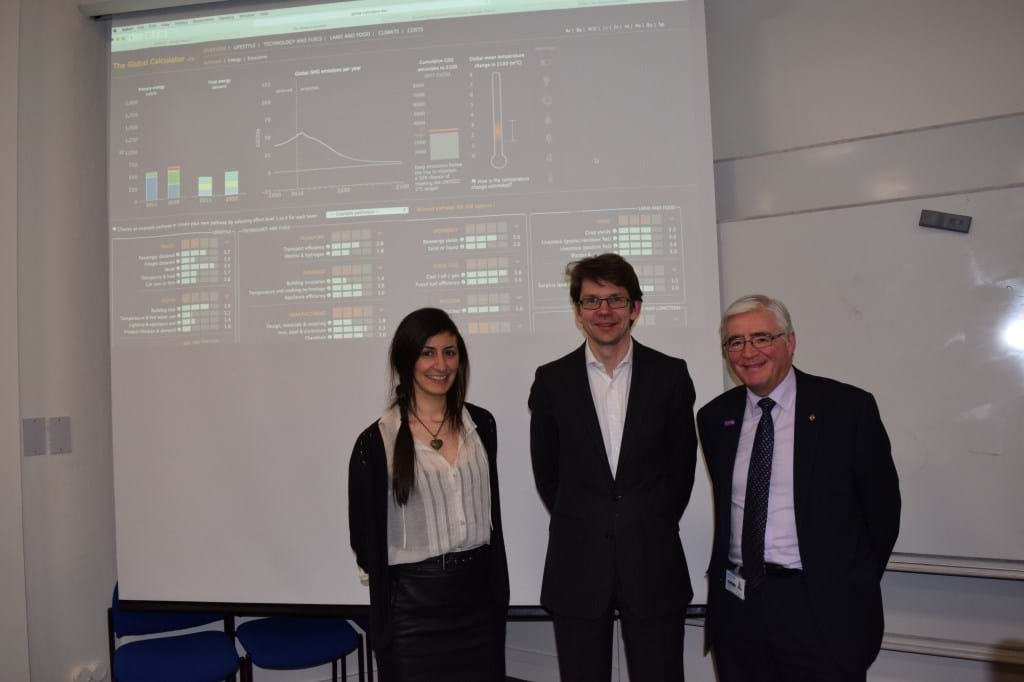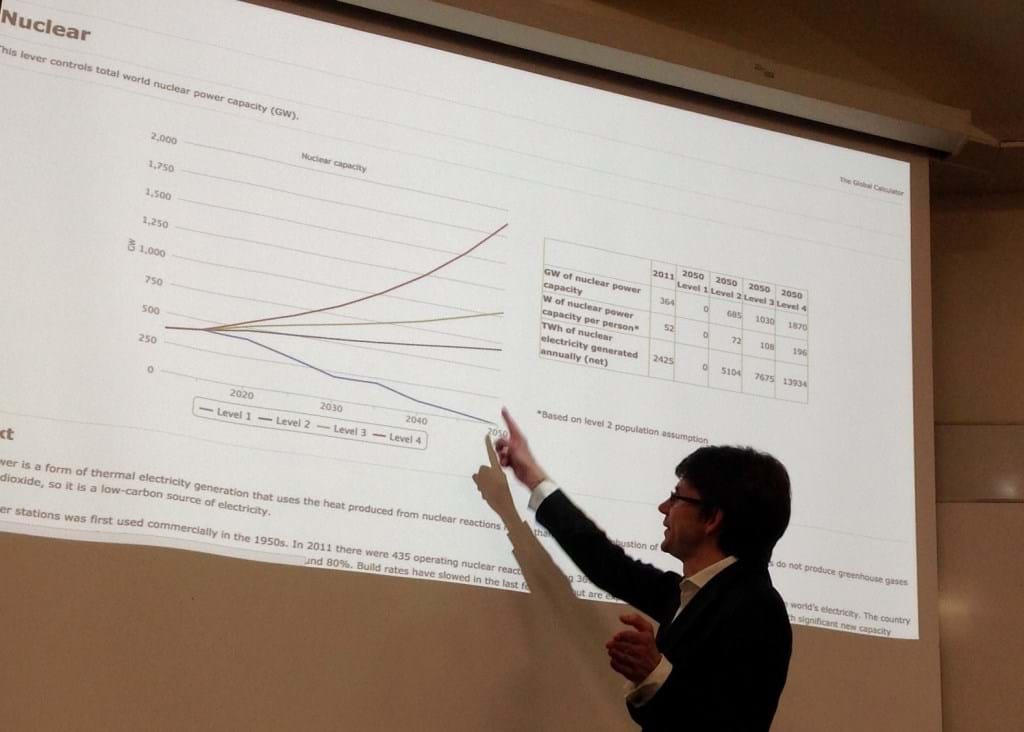Using a calculator to find climate change solutions (Day 301)

24th March 2015
Last week I was fortunate to attend a meeting of the IChemE London and South East Member Group to discuss the need to transform the technologies and fuels we use, and make smarter use of our resources.

The talk was hosted by Dr Tom Counsell from the UK Department for Energy and Climate Change (DECC). Tom gave a highly entertaining introduction to the Global Calculator.
Tom posed a big question: “Can we improve equality of life for 10 billion people and tackle climate change?” A lively debate ensued and I suddenly found myself in a room full of people trying to save the world.
I have always believed that its the job of the chemical engineer to improve quality of life for all and to do it sustainably. However, in recent times I have concluded that we are sleepwalking into a catastrophic climate change future. Serious effort is needed to avert this.
The Global Calculator offers a way to test out our theories and apply solutions to combat climate change.
The Global Calculator is a free and interactive tool that helps us understand better the link between lifestyle, energy and climate change consequences. The tool is aimed at anyone who is interested in exploring what the world will look like in 2050.

The audience offered Tom a variety of solutions to halt climate change. Tom plugged in the numbers and the Global Calculator churned out the results in an accessible graphical format.
Suggestions from the London and South East Member group ranged from solar and marine energy, wind turbines, to having more efficient appliances, carbon capture and storage, better sector efficiency and nuclear power. Chemical engineers aren't shy when it comes to saving the world.
However, decarbonisation of the energy system is not the only solution; there is also the important question of what kind of lifestyles we want to live. It is these choices that seemed to have the biggest impact on the Global Calculator emissions outcomes.
One scenario that really struck home was the impact of eating meat, particularly beef. Not only is eating meat costly in terms of space, water and resources but it also has a huge impact on emissions.
In the future, I can see decisions over personal emissions raise questions such as: should I travel by plane; where does my energy supply come from; and should I eat this burger?
Climate change is everyone’s responsibility and we need to find a way to let individuals take charge of the decisions they make and cut our emissions at a personal level.

This Global Calculator tool offers just that - a way to get the individual involved in the decision making process. It also helps us to review the feasibility of various scenarios, and I hope it will help influence the decisions we need to make to stop climate change.
The heartening message to take from this work is that it is possible to prevent climate catastrophe and ensure quality of life for all, but we must act now.
I recommend that you have a look at the Global Calculator tool and play around with it to see how your ideas could have an impact.
If you are working on climate change solutions why not get in touch and share your story.